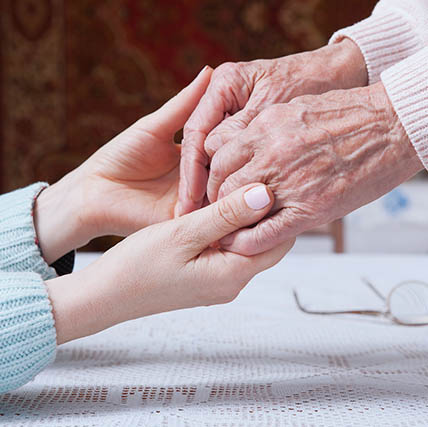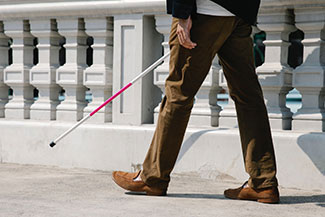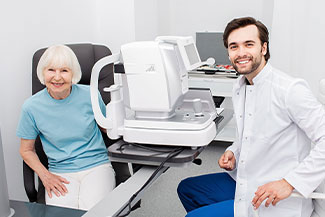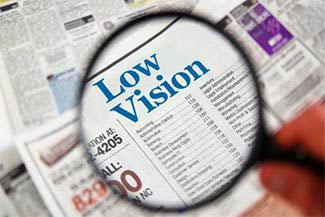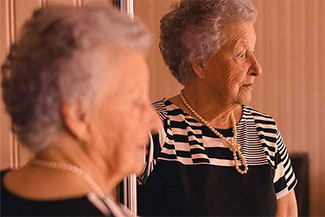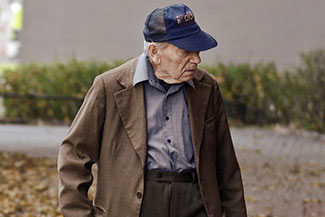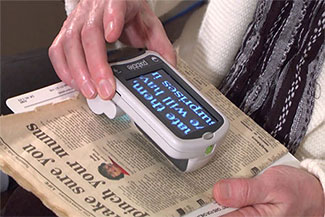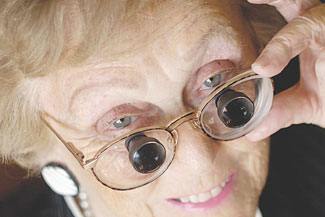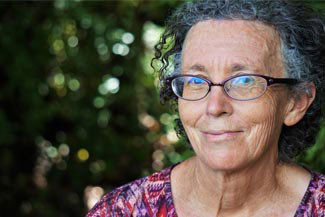Your Local Optometrist & Private Practice in LOCATION1,
When your medical eye doctor says, “nothing more can be done,” contact a low vision optometrist. Low Vision Center is one of over 40 optometrist practices in North America that has helped thousands of low vision patients live independently, fulfilling lives after others told them it wouldn’t be possible.
Thanks to the doctor’s knowledge, dedication, and experience, patients can do what they enjoy: drive, read, work, play, cook, or recognize people’s faces.
Call for a personal consultation and find out if you are a candidate for low vision glasses.
What is a Low Vision Optometrist?
Our goal is for you to reclaim the ability to carry out tasks that are important to you. Such an activity could be driving a car, reading the paper, recognizing faces, watching TV, playing cards or board games, cooking, and anything that matters in your life.
As a member of the International Academy of Low Vision Specialists (IALVS) – a network of low vision optometrists – Low Vision Doctor Name intensively studied low vision care. We are committed to maximizing our patient’s vision and help them live their best lives.
Causes That Lead to Low Vision
Low vision is an eye condition that cannot be corrected with conventional eyeglasses or contact lenses. Its causes are usually due to injury, disease, or genetics and include:
- Macular Degeneration: Wet or Dry
- Juvenile Macular Degeneration (i.e., Stargardt’s disease, Best disease, etc.)
- Diabetic Retinopathy – a complication of diabetes affecting eyesight
- Retinitis Pigmentosa – leads to contraction of the visual field
- Glaucoma – damage to the optical nerve due to inner eye pressure
- Cataracts – a clouding of the eye lens
- Hemianopsia – the loss of part of the visual field
- Albinism – the lack of pigments in the back of the eye
- Other Vision-Limiting Conditions

